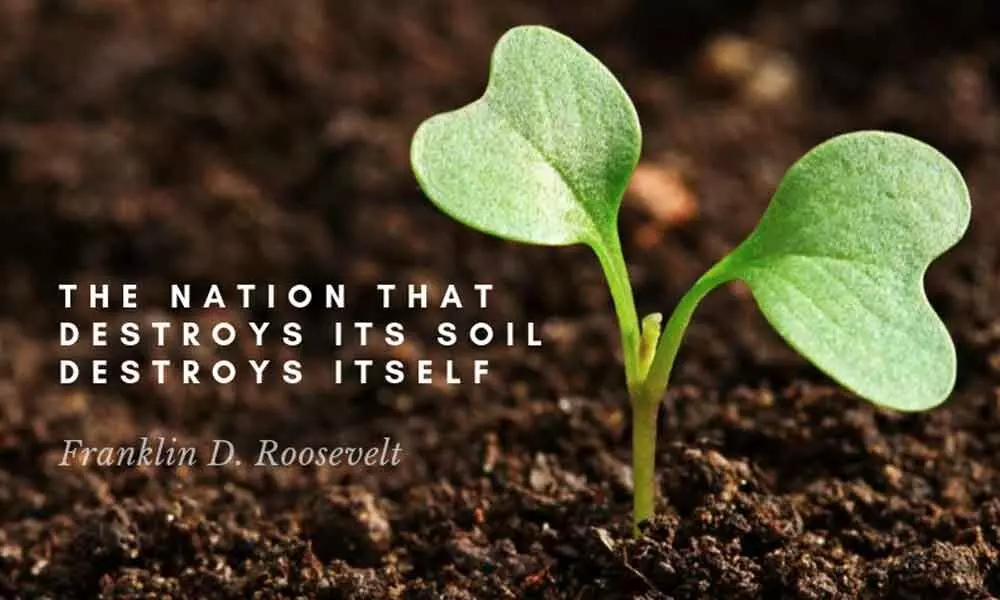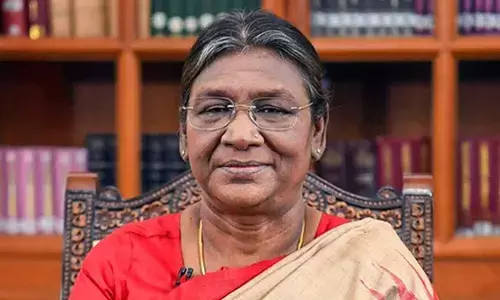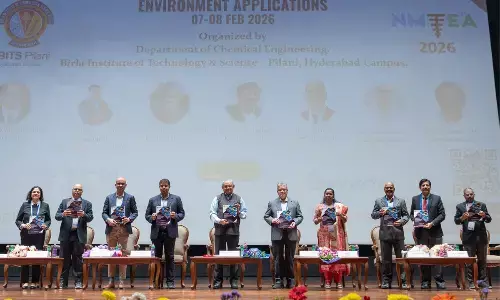Nation that destroys its soil, destroys itself

Nation that destroys its soil, destroys itself
It is time we took a break from politics around which the world today keeps revolving. We often keep using the word ‘Son of Soil’ but never bother to think about soil and the need to protect it
It is time we took a break from politics around which the world today keeps revolving. We often keep using the word 'Son of Soil' but never bother to think about soil and the need to protect it. There would have been a lot of noise and celebrations if it were some other international day like Valentine's Day, Mother's Day, Father's Day etc.
But the World Soil Day on Saturday went unnoticed. Only those who are deeply connected with soil expressed their concern towards the damage we are causing to the soil and the negative impact on the mankind. Though some mystics gave messages, it hardly reached the ears of the common man. It is time the governments which try to project that they are farmer-friendly realised that they have a crucial role in preventing consistent degradation of soil and support greater growth of plants and trees of medicinal values which can actually nurture the human life.
It is also equally necessary that steps should be taken to ensure that the future generations are made to understand what is soil, how to protect it, how to prevent degradation etc. Sadhguru, Founder, Isha Foundation, not only penned a poem explaining the importance of protecting soil, but also called for attention to the urgent need to restore soil health on the planet. "Soil is neither a commodity nor an infinite resource.
If we destroy it, life will cease to exist on this planet. The most simple and effective solution is to bring back trees - there is simply no other way to restore soil health. Let's make it happen," Sadhguru tweeted, while tagging global conservation bodies that promote nature-based solutions for land restoration. The most urgent need of the day is to take up more and more grassroot ecological projects whose primary objective is to restore soil nutrients. Isha has undoubtedly set a good example of working extensively with farmers in soil revival programmes.
But much more serious and dedicated efforts are needed, and the Centre and the State governments should involve NGOs, social organisations and individuals including schools and educational institutions in this activity. Today farmhouses have become a fashion. Ask any child visiting them to touch soil particularly in the urban areas, they would make a funny face and talk about infections. There was a time when people used to use soil in villages to cleanse their hands.
Today it is viewed as something that should not be touched. There is also a need to stress on issues like desertification. The learned people and old timers say the only method to restore soil health is through animal waste and leaves from the trees. That is why the theme for World Soil Day 2020 is "Keep soil alive, protect soil biodiversity". This years' campaign urges us to focus on the workers belowground - from tiny bacteria to agile millipedes and slimy earthworms - all of which contribute to processes that are indispensable to life on Earth.
A lot of talk and tall claims are made by all governments about the measures being taken to restore tree cover. But a look at the survival rate and the kind of trees that are being planted shows it is more of publicity and less of reality. Restoring tree cover is critical to restoring habitats and ecosystems, to reversing biodiversity loss, to bringing back soil health and productivity, and to avert large-scale desertification of our planet.
Along with the financial help, the governments have started giving to farmers, they should enlist the support of the farmers in promoting tree-based agriculture, agroforestry and take measures to reduce migrations from villages and that can happen only if the governments succeed in preventing loss of agrarian livelihoods.
Several countries including India have pledged to collectively restore 350 million hectares of degraded land in the coming decade. India will contribute 26 million hectares to this effort. But unless some visible measures are taken, the pledge would make no sense and there would be another resolution on December 5, 2021 as the soil would continue to get degraded.
















